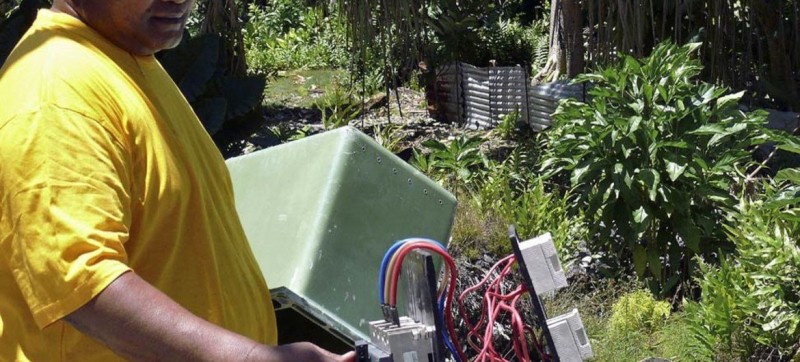Play video
UN Photo/Ariane Rummery A renewable energy project in Tokelau, supported by UNDP, converts solar-generated power to electricity.
“Our shared goal is to give greater priority to the decolonization agenda and spur accelerated action,” UN Secretary-General António Guterres told the Special Committee on Decolonization, or C-24, regional seminar.
Tweet URL
Established by the General Assembly in 1961, the Committee is mandated to examine the application of the Declaration on the Granting of Independence to Colonial Countries and Peoples.
Since the birth of the UN in 1945, more than 80 former colonies, comprising some 750 million people, have gained independence. The ongoing process affects 17 non-self-governing territories, representing nearly 2 million people.
Focus on SDGs
Highlighting the seminar’s theme, advancing the Sustainable Development Goals (SDGs) in the territories, the Secretary-General said that halfway to the deadline for the 2030 Agenda for Sustainable Development, “we are leaving more than half the world behind”.
“Progress has stalled and, in some cases, even reversed,” he cautioned. “The SDGs are the path to peace and prosperity for all on a healthy planet; no country can afford to see them fail.”
Existential stakes
Yet for many non-self-governing territories that are small islands on the frontlines of the climate emergency, “the stakes are existential”, he warned.
“As a global community, we must ensure the territories have the resources and support you need to advance the SDGs, build resilience, and invest in your future,” he told delegates.
The decolonization process must be guided by the aspirations and needs of the territories on a case-by-case basis, he said, expressing gratitude to the Committee for its unwavering commitment to the complete elimination of colonialism.

© UNICEF/Vlad Sokhin Children play on a jetty on Fale Island in the Pacific Ocean archipelago of Tokelau.
Turning the tide
“I count on you to generate new ideas and open new pathways for stronger cooperation between the territories, administering Powers and other stakeholders, in accordance with relevant resolutions,” he said.
“Together, we can turn the tide and kickstart a new drive for SDG achievement in the territories and beyond,” he said.
Learn more about how the UN helps decolonization efforts here.

United Nations Map of 17 non-self-governing territories that remain on the UN decolonization list..




Comments are closed, but trackbacks and pingbacks are open.